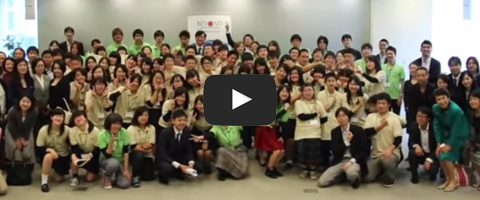BEYOND Tomorrow Tohoku Future Leaders Summit 2014
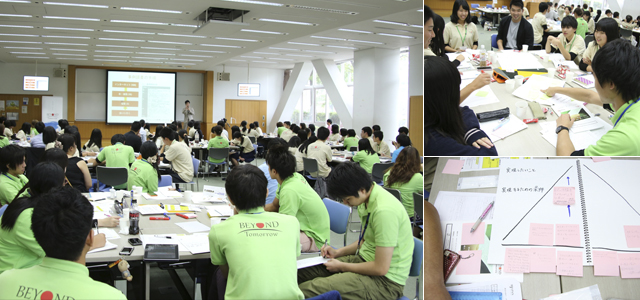
Overview
The Global Fund for Education Assistance held Tohoku Future Leaders Summit for the fourth time since its inception in 2011. The summit is aimed at young people who seek to overcome adversity, maintain a global outlook and contribute to society both in Japan and around the world. Together with 54 high school students who were selected on an application basis, 22 university students were also selected to attend, based on their active contribution to society and other BEYOND Tomorrow programs after having experienced the disaster first-hand in Iwate, Miyagi, or Fukushima prefectures. The students divided into groups, and as a group created proposals under the guidance of established leaders in various fields. We believe that precisely because they have experienced the tragedy of the earthquake and tsunami, these students are able to become leaders with a strong sense of compassion and serve a larger society. At this Summit the students, as survivors of the disaster, reflected on what roles in society they must fulfill and how to convert these ideas into action.Objective
- To create “Proposals for Tohoku’s Future” The students discussed the revitalization of Tohoku through personal experiences and others’ stories, and presented their ideas in a form of proposals for Tohoku’s future.
- To create a platform for future leaders from Tohoku to come together The Summit served as a platform for students to meet friends with aspirations to turn their adversity into abilities to serve others and create everlasting friendships.
- To draw a blueprint for their future Through dialogue with leaders from all walks of life and friends coming from Tohoku region, the students were given opportunities to think about their lives and their dreams for the future.
- Dialogue with oneself The students engaged in dialogue with their own selves to reflect on themselves in the past and also look into the future.
Date and Location
October 11-12, 2014 National Olympic Memorial Youth Center (Shibuya, Tokyo) October 13, 2014 Tokyo Building (Gulliver International CO, LTD) (Marunouchi, Tokyo)Participants
High school students
54 high school students who experienced the Great East Japan earthquake and tsunami in Iwate, Miyagi, or Fukushima prefecture, and wish to transform the hardships they experienced during the disaster to abilities to exercise leadership both domestically and internationally with a global outlook, were selected by application essays.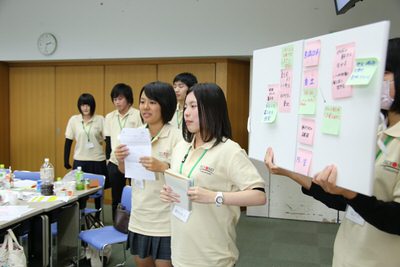
Team leaders
7 university freshmen from BEYOND Tomorrow Tohoku Future Leaders Program 2014 and 1 university junior from BEYOND Tomorrow college Scholarship Program served as team leaders for the high school students throughout the three-day two-night program, providing necessary mentorship and counsel.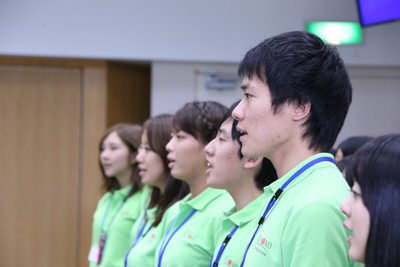
University students
Eight university juniors who participated in the “BEYOND Tomorrow University Scholarship program” and six university sophomores who participated in the “BEYOND Tomorrow Tohoku Future Fellows Program 2013” formed teams and helped with the policy proposals.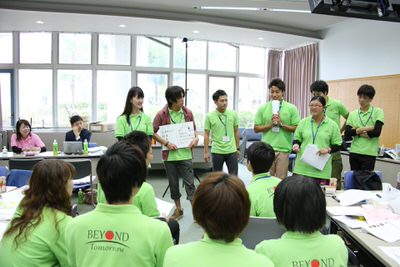
Proposal advisors
Professionals from a variety of fields joined each team and provided necessary support. Listening to the ideas of the students, they supported the students’ discussion on the future of Tohoku and the process to develop proposals.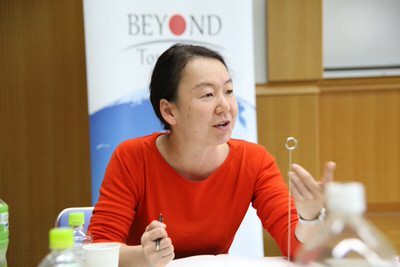
- Yushi Akimoto
- Okinokuni Learning Center
- Koji Kagoshima
- Creative Director, DENTSU Inc.
- Naoko Takasu
- Programme Management Specialist, UNDP Representation Office in Tokyo
- Masakazu Takamori
- Great East Japan Earthquake Recovery Initiatives Foundation
- Takuma Terada
- Director, educational reform promotion division, Hiroshima prefectural board of education secretariat
- Yo Nagami
- CFO, raksul, Inc.
- Seigo Hara
- McKinsey
- Nami Matsuko
- Senior Manager, Overseas Business Strategy department , Nomura Asset Management Co., Ltd.
- Masatomo Miyazawa
- Ministry of Land, Infrastructure, Transport and Tourism
- Hiroaki Yabe
- Youth Venture Programmatic Leader, Ashoka-Japan
Experts
Students received vital input from experts with first-hand experience in relevant fields to think about the revitalization of Tohoku.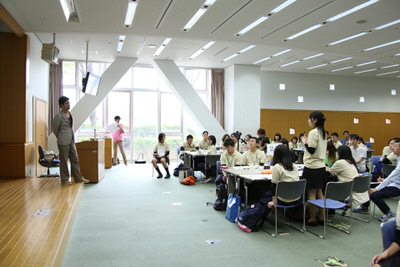
- Kiyoko Kojima
- Know School
- Yoshimitsu Kaji
- Director of Marketing & Communications, Accenture Japan
- Hisashi Sonehara
- Representative Director, NPO Egaotsunagete
- Ryo Yamazaki
- CEO, studio-L
Program Outline
Sharing experiences from the disaster
Three years have passed since the disaster. Many of the participants could never speak about their hardships no matter how much time passed. At this program, they were able to talk with each other about their experiences during the disaster. For many of them, they could not hold back the tears as they recounted their experiences and listened to others’. People who met for the first time gathered and found themselves in an environment that fostered an unexpected sense of security for the participants, whose thoughts and stories became the basis for the discussions of the next three days.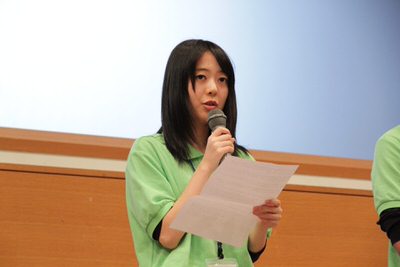
“I would like to let ones with great hardships know that there is no need to overcome their hardships. I myself have not overcome mine, not even 1%. I don’t think we need to decide whether we did come over the hardships or not. I would hope that we can cherish the people we meet here at the Summit.”
Yuki Abe College of Law, Nihon University (graduate of Nihon University Tohoku High School)
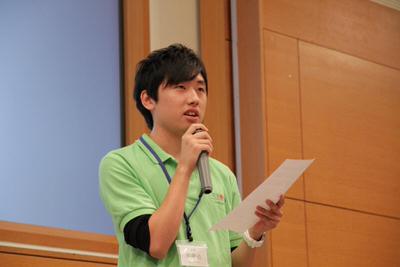
“Before the disaster, I was not strong in academics, nor did I try anything to the best of my abilities. I was not able to do anything for my mother. Telling my stories about the disaster and connecting with people is the only thing I can do now for my mother’s sake. Shun Sato Business Law Department Tokyo College of Legal Service, Sendai Campus (Graduate of Miyagi Agricultural High School)
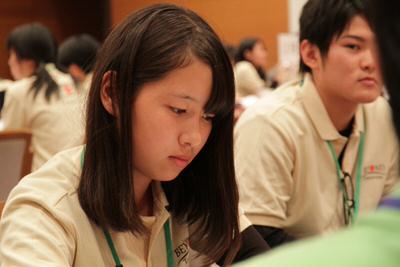
“From experiencing the disaster, I feel I have been reborn after seeing people’s kindness, and learning to appreciate things I used to take for granted in my daily existence. Although the earthquake and tsunami was a terribly painful experience for me, I know that it has undoubtedly made me a stronger person.”
Miu Hamato second year student at Kamaishi Prefectural High School, Iwate Prefecture
Theme for proposals
On the morning of the second day, themes for the presentations were presented for the teams.Rebuilding Tohoku means revitalizing of Tohoku. To all of you who are participating in the Tohoku Future Leader’s Summit, I hope you will all think about what the creation of Tohoku means to you, what issues Tohoku is facing, and how these problems can be solved. I hope you can all come together to think about and discuss these issues, and present your ideas.
A message to the BEYOND Tomorrow Tohoku Future Leaders Summit 2014
Hello everyone. This is Shinjiro Koizumi. I am immensely impressed with all of you for representing university and high school students from Tohoku disaster communities today. Up until now, I have had opportunities to engage in dialogue with BEYOND Tomorrow students, and was deeply moved to see their strong will to build the future of Tohoku with their own hands. Although more than three and a half years have passed since the Great East Japan earthquake and tsunami, Tohoku still faces a wide variety of problems. In fact, there are issues that may require a very long time to resolve. But you are a generation that share the difficult experience of the disaster and join hands with mutual trust. All of you together, I am certain that you can take on difficult challenges. I understand that this is the 4th Tohoku Future Leaders Summit. It is wonderful that you all have the opportunity at this place to think about the challenges confronting Tohoku and create proposals to deal with these problems. I am planning to attend the closing plenary tomorrow, and am looking forward to listening to your presentations. As you are aware, regional revitalization is one of the top priority agenda items for the Abe administration. This is aimed to avoid excessive migration to Tokyo, addressing sudden population decrease, and create attractive regions. Rebuilding Tohoku means revitalizing of Tohoku. To all of you who are participating in the Tohoku Future Leader’s Summit, I hope you will all think about what the creation of Tohoku means to you, what issues Tohoku is facing, and how these problems can be solved. I hope you can all come together to think about and discuss these issues, and present your ideas.。 Tohoku’s future is in the hands of each of you. Your thoughts, discussions, and debates at this Tohoku Future Leaders Summit will surely help create the future of your hometowns. I wish you the best of luck. I look forward to meeting you all tomorrow!Shinjiro Koizumi, Parliamentary Secretary of Cabinet Office and Parliamentary Secretary for Reconstruction
- For high school students: Regional revitalization and Tohoku rebuilding
- University students: Regional revitalization and addressing the population outflow from the coastal regions of Tohoku
Understanding local needs
In crafting their proposals, the students started by understanding the needs of the Tohoku region. Now, three and a half years after the disaster, what do the people of Tohoku want, and what measures do they truly need? The students conducted a discussion based on their own experiences and the voices of people from the region.Shared voices from the local region
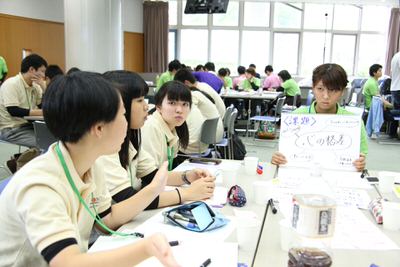
For the people of Tohoku to finally feel some sense of relief, all of the hospitals, offices, and other facilities lost during the tsunami must be rebuilt. Tohoku must also have the necessary schools and other educational facilities to produce vital human capital. With these, more people hope to return to Ogatsu (in Miyagi Prefecture), but we must realize that speed is an important factor in getting people to come to or return to the area. To this end, the community must work together for attractive city planning.
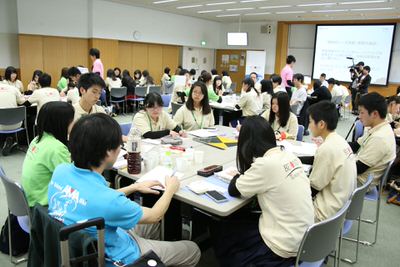
“True revitalization,” is not simply a matter of returning to exactly what we had before the disaster, but rather replacing what was lost with what is possible now, even if that meant something different from before. In society people seem to prevent people’s memories of the disaster from fading, but I don’t think that weathering disasters in itself is a bad thing. “True revitalization” can be achieved when people whose lives and perspectives were affected by the disaster start looking forward to realize their dreams.
Speaker sessions and expert interviews
What is desired to make Tohoku an attractive region? Throughout Japan, experts are contributing in a variety of ways to regional revitalization. These experts joined the students to share their experiences and perspectives, and students shared their ideas with the experts, making the sessions dynamic and interactive where the students and experts engaged in an earnest debate.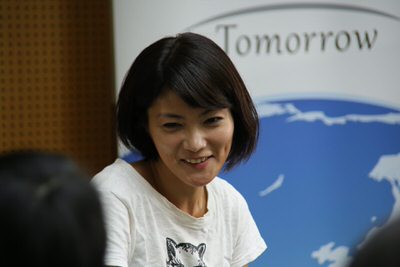
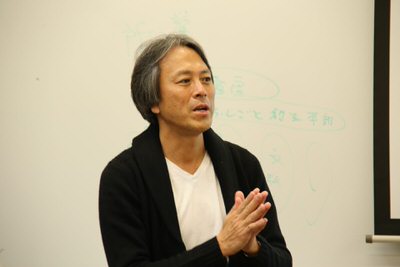
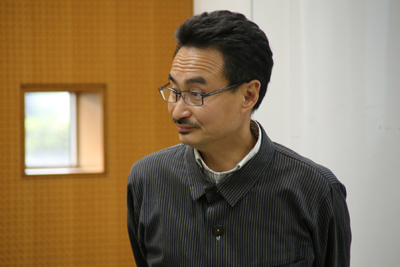
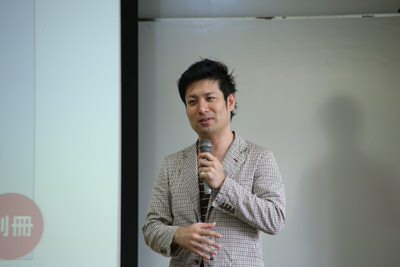
Final presentations
The students presented the culmination of their 3 days of discussion at the closing plenary on the final day. Leaders from business, government, academia, the arts, media, and non-profits joined the plenary to listen to the students’ presentations. At the closing plenary, Shinjiro Koizumi, Parliamentary Secretary of Cabinet Office and Parliamentary Secretary for Reconstruction, and Heizo Takenaka, Professor, Keio University were also in attendance and made special remarks for the students. Leaders representing various fields as guests received enormous inspiration from the students full of power and passion for Tohoku’s future, making the event a very special one.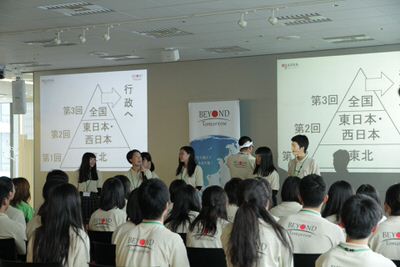
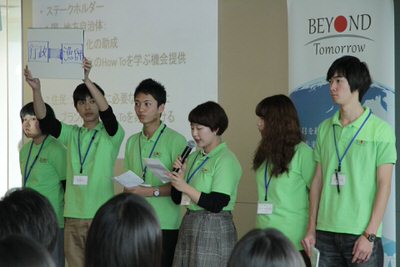
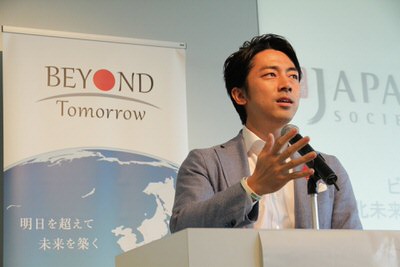
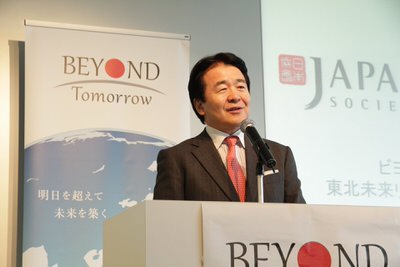
Student speeches
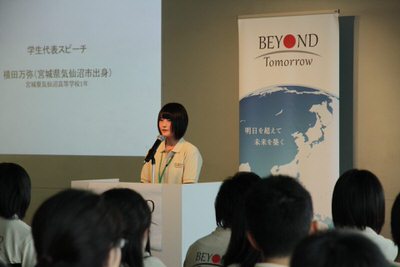
I was raised in a family of 7, but now I am the only one left, and I question myself: Why is it me that survived? There were many others who would have made far more of their lives than me. But, when I think of the days after the disaster, there was no way I could keep on living by myself. Supported by so many people, I am continuing on with my life. So many people gave me helping hands.
Maya Yokota First year student at Kesennuma High School, Miyagi Prefecture
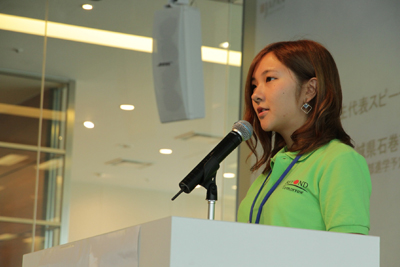
Three years ago, I spoke about my experiences during the disaster at this Tohoku Future Leaders Summit. At that time, I said, ‘People may look at me and pity me, but that is not how I see myself.’ When I was able to say that, I remember feeling something changing inside me. From talking about my painful experiences, I was able to gain the strength to move forward. I was able to find my own confidence. Moving forward, other high school students may have the opportunity to share their experiences from the disaster. I want them to know that talking about these painful experiences is able to create a source of strength to move forward.
Sayaka Sugawara Keio University Department of Policy Management (beginning in April 2015) (Graduate of Leysin American School)
Supporter
 Japan Society
Japan Society

